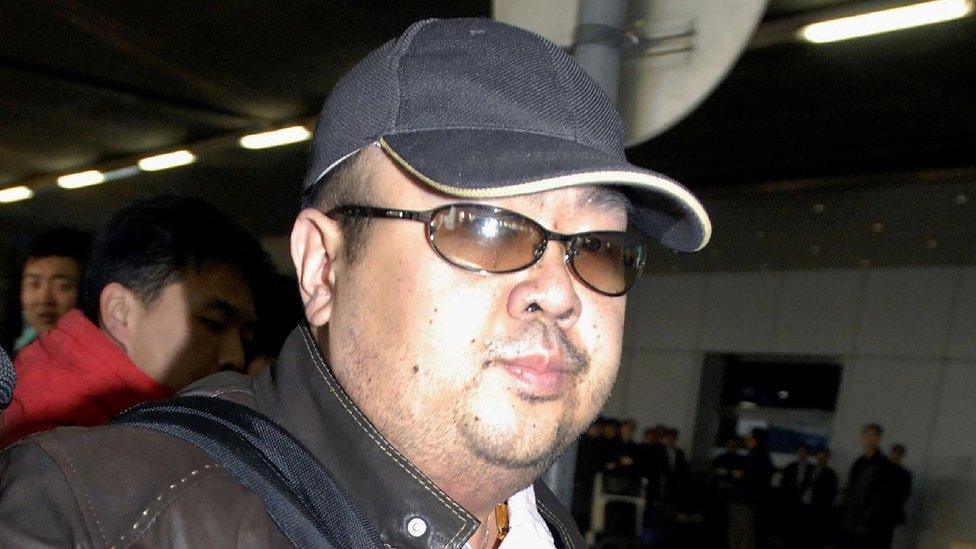Kim Jong-nam death: Malaysia and N Korea in tit-for-tat exit bans
- Published
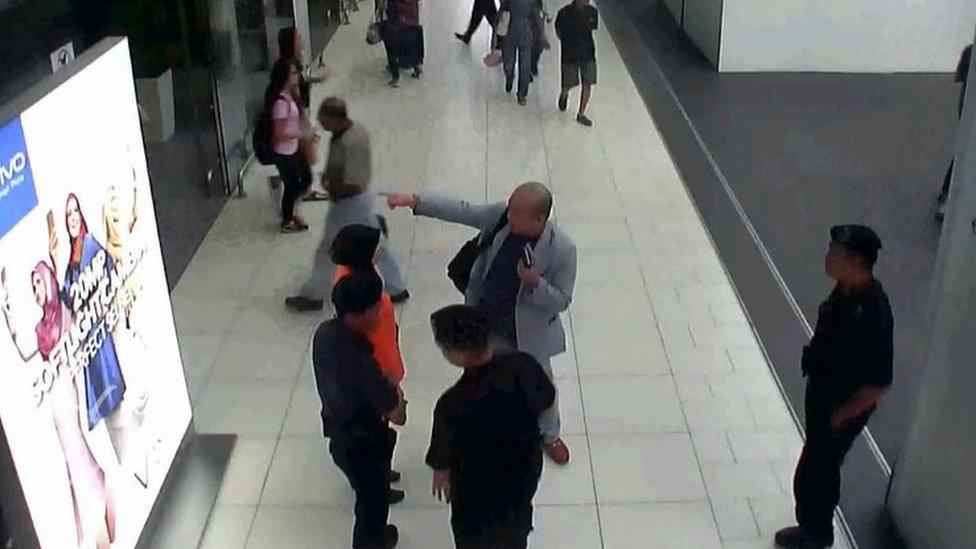
Kim Jong-nam sought help at the airport shortly after his face was smeared with the deadly VX nerve agent
North Korea and Malaysia have banned each other's citizens from leaving their countries, in a growing row over the killing of Kim Jong-nam.
The extraordinary tit-for-tat actions come amid North Korean fury at Malaysia's ongoing investigation into his death at a Kuala Lumpur airport.
The North Korean leader's half-brother was killed with a potent nerve agent.
Malaysia has not directly blamed the North for this, but there is widespread suspicion Pyongyang was responsible.
North Korea has fiercely denied any accusations of culpability and the row over the killing - and who has the right to claim Mr Kim's body - has rapidly escalated over the past two weeks.
Both Malaysia and North Korea have already expelled each other's ambassadors.
What was North Korea's announcement?
The state news agency KCNA said on Tuesday that "all Malaysian nationals in the DPRK [Democratic People's Republic of Korea] will be temporarily prohibited from leaving the country until the incident that happened in Malaysia is properly solved".
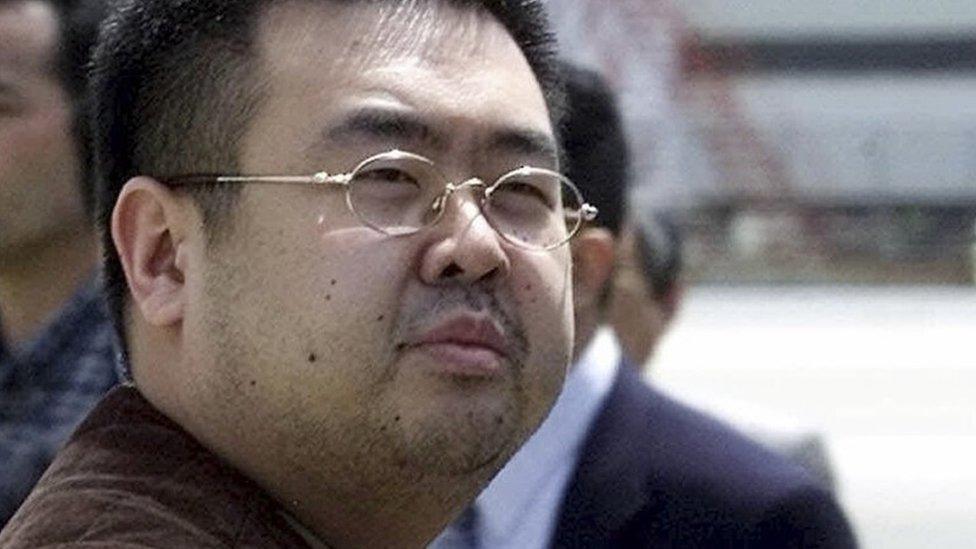
Kim Jong-nam was known to frequently travel to Malaysia and had been waiting for a flight to Macau when he was attacked
It said this was to ensure the safety of its citizens and diplomats in Malaysia.
Malaysians in North Korea would be able to carry on their lives as normal, it added.
How did Malaysia respond?
Furiously. Malaysian Prime Minister Najib Razak said it was an "abhorrent act" which was "in total disregard of all international law and diplomatic norms".
Malaysians were effectively being held hostage in North Korea, he said in a statement, external.
"Protecting our citizens is my first priority, and we will not hesitate to take all measures necessary when they are threatened."
Kim Jong-nam was poisoned with an extraordinarily potent chemical weapon called VX
Malaysia initially responded by banning North Korean embassy staff and officials from leaving the country.
But Mr Najib later said the ban would extend to all North Koreans.
How many people does this affect?
Malaysian officials have said there are believed to be 11 Malaysian citizens currently in North Korea, mostly diplomats.
They include two Malaysians working with the UN's World Food Programme, the organisation said.
The Malaysian authorities say there are about 1,000 North Koreans currently in Malaysia.
Until last week, North Koreans did not need a visa to enter the country.
Is this legal?
Such actions are highly unusual. Under Article 13 of the Universal Declaration of Human Rights, external, "everyone has the right to leave any country, including his own, and to return to his country".
Malaysia has signed that declaration, but North Korea has not.
The ban also breaks the Vienna Convention on Diplomatic Relations, external, which both countries have ratified.
Where has the investigation into Kim's death got to?
A post-mortem examination on Mr Kim's body found he was killed by a dose of VX nerve agent, a substance classified as a weapon of mass destruction, as he waited to board a flight to Macau on 13 February.
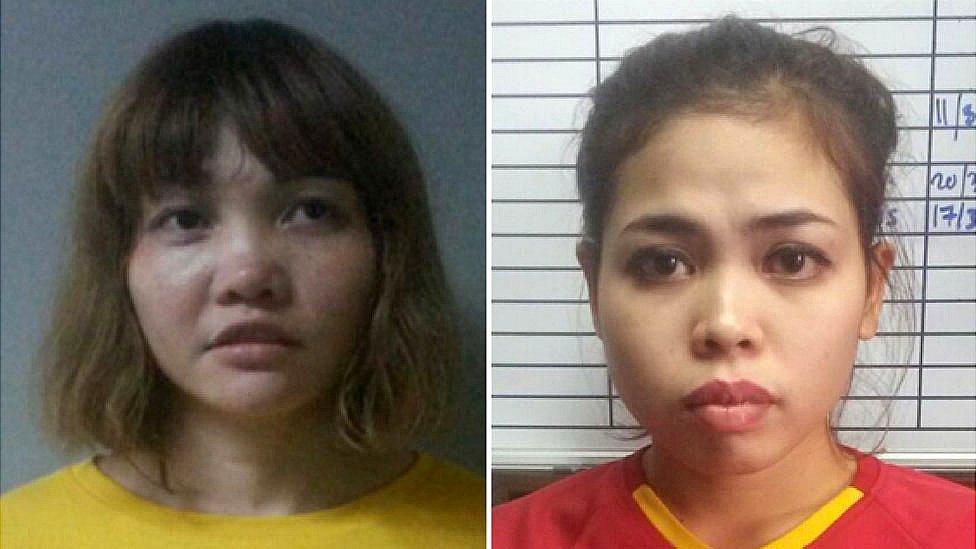
Doan Thi Huong (left) and Siti Aisyah (right) have both been charged with killing Mr Kim
So far, only two people - an Indonesian woman and a Vietnamese woman - have been charged with murder. They have said they thought they were taking part in a TV prank.
A detained North Korean was released last week because of lack of evidence, but Malaysia is seeking a number of other North Koreans, including a diplomat.
On Tuesday, Malaysia's police chief Khalid Abu Bakar said he believed two of those suspects were hiding inside the North Korean embassy compound in Kuala Lumpur.
"We will wait and if it takes five years we will wait outside, definitely somebody will come out," he told reporters.
Armed police have been deployed outside the embassy, cordoning it off, Malaysian media reported.

History of Malaysia-North Korea relations
Malaysia was one of the few countries that had relatively friendly relations with North Korea
Diplomatic ties between the nations were initiated in the 1970s
As trade in resources such as palm oil and steel increased, North Korea eventually established an embassy in Kuala Lumpur in 2003
A former North Korean ambassador to Malaysia, Chang Yong-chol, was executed on Kim Jong-un's orders as part of a purge of the family of his uncle, Chang Song-thaek, who was also the North Korean leader's uncle and was executed in 2013.
Visa-free travel for Malaysians and North Koreans travelling to each other's countries was abruptly cancelled in the wake of Kim Jong-nam's death
- Published24 February 2017
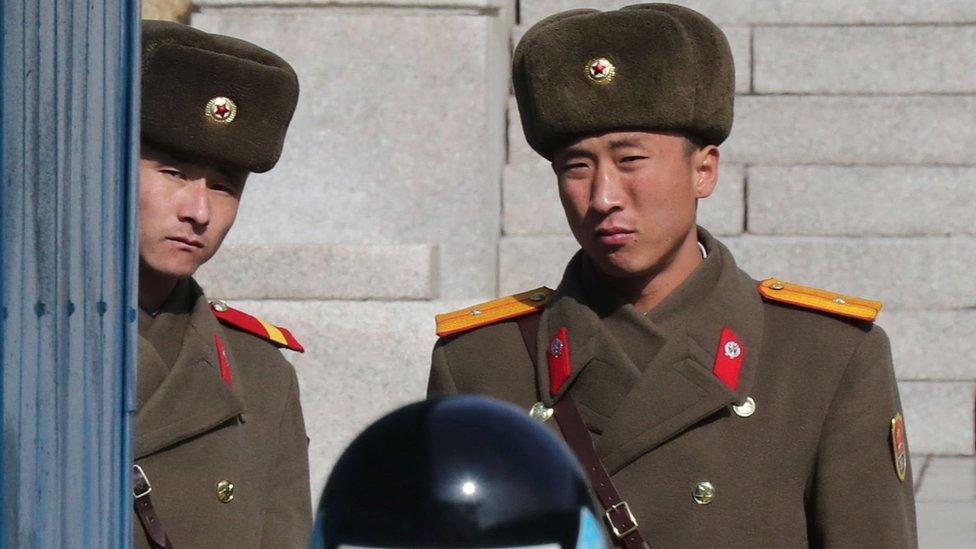
- Published2 October 2017
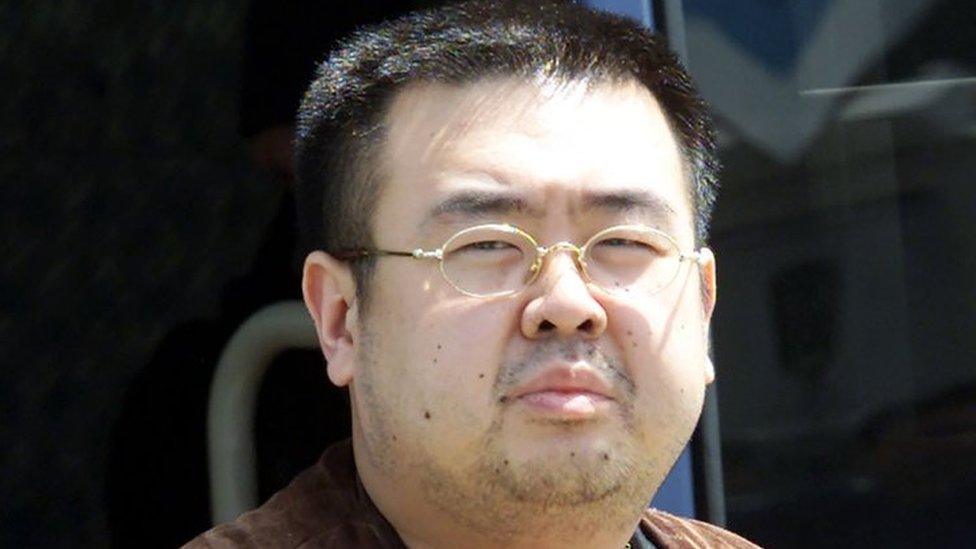
- Published24 February 2017
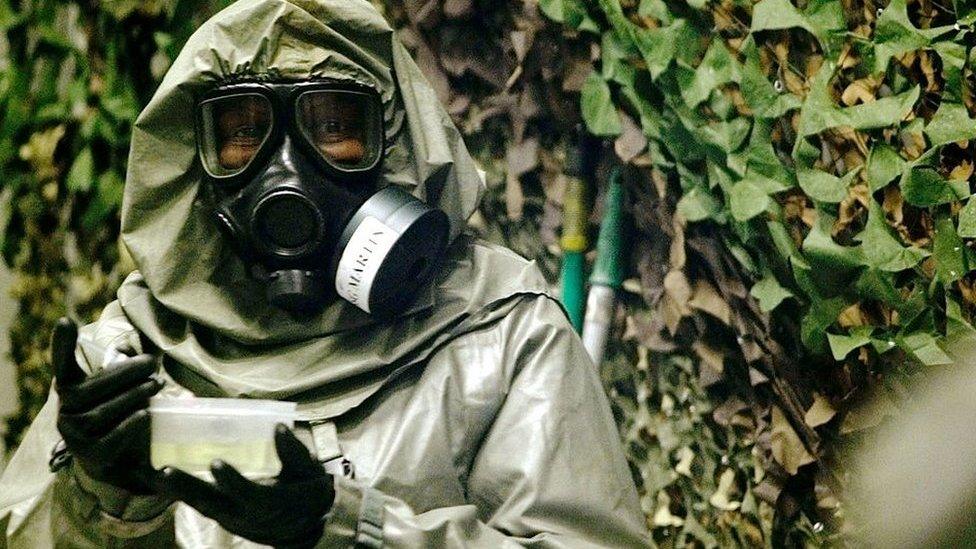
- Published15 February 2017
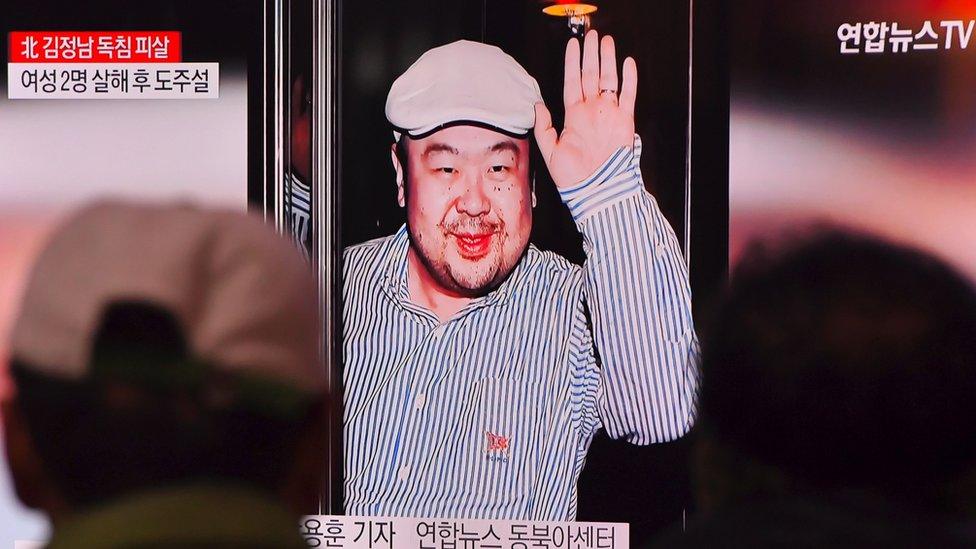
- Published25 February 2017
